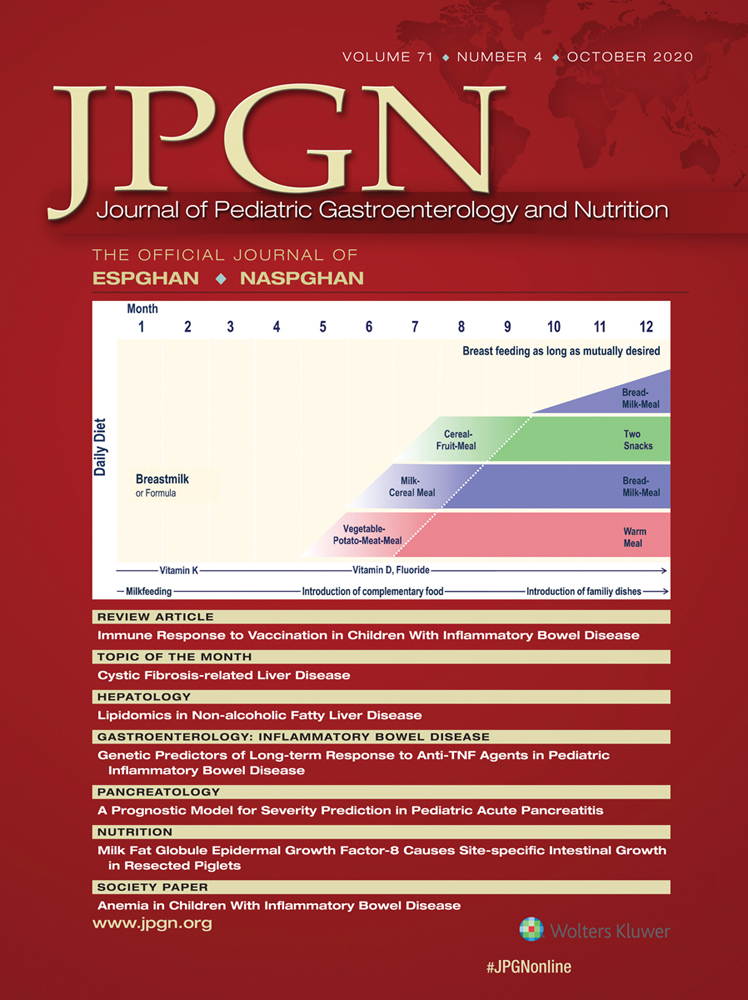Adiponectin is Increased in Pediatric Patients With Autoimmune Hepatitis Independent of Body Weight
Grant support: Financial support was received from the Coordination for the Improvement of Higher Education Personnel (Coordenação de Aperfeiçoamento de Pessoal de Nível Superior—CAPES) and the National Council for Scientific and Technological Development (Conselho Nacional de Desenvolvimento Científico e Tecnológico—CNPq).
The authors report no conflicts of interest.
Supplemental digital content is available for this article. Direct URL citations appear in the printed text, and links to the digital files are provided in the HTML text of this article on the journal's Web site (www.jpgn.org).
ABSTRACT
Objective:
A high prevalence of obesity is reported in children and adolescents with autoimmune hepatitis (AIH). Adipokines participate in inflammatory processes. The objective of this study was to examine the relationship between excess weight and systemic inflammation, adipokines, and ghrelin in adolescents with AIH.
Method:
This case-controlled study included 27 adolescents with AIH (13 with excess weight and 14 with normal weight) and a control group. Excess weight was defined by a body mass index/age Z score >+1 standard deviation. Adipokines (adiponectin, leptin, tumor necrosis factor alpha, interleukin 6 [IL-6], and IL-10) and ghrelin were measured with Luminex technology.
Results:
Adiponectin (μg/mL) was higher (P < 0.001) in AIH adolescents with and without excess weight (median: 35.0 and 42.1, respectively) than in normal-weight (17.5) and excess-weight (17.0) controls. Leptin was higher (P < 0.001) in excess-weight AIH patients (18.0 ng/mL) and controls (19.8 ng/mL) than in normal-weight AIH (7.7 ng/mL) and control (7.0 ng/mL) adolescents. IL-6 levels were higher in excess-weight (3.8 pg/mL) and normal-weight (3.8 pg/mL) AIH patients than in excess-weight (1.1 pg/mL) and normal-weight (0.5 pg/mL) controls. IL-10 levels were higher (5.2 pg/mL) in normal-weight AIH patients than in excess-weight (1.8 pg/mL) and normal-weight (2.1 pg/mL) controls. Ferritin levels were lower in patients with AIH than in controls.
Conclusions:
Independent of body weight, AIH patients had higher levels of adipokines, especially adiponectin and IL-6. Leptin levels were associated with body weight and were not influenced by AIH. IL-10 levels were associated with lean tissue in AIH.




